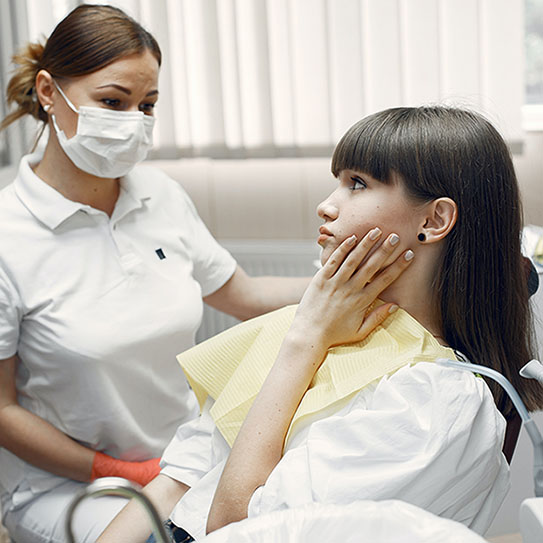
Experiencing severe dental pain can be alarming and may often require immediate attention. In some cases, an emergency dental extraction becomes necessary to alleviate pain and prevent further complications. At Thornwood Family Dental, we prioritize your oral health and comfort, providing timely interventions when you need them most. Understanding when such drastic measures are needed can help you decide when to seek urgent dental care.
What is an Emergency Dental Extraction?
An emergency dental extraction involves the removal of a tooth due to severe infection, trauma, or crowding that causes significant pain or risk to your overall health. Unlike routine extractions planned during regular dental visits, emergency extractions are sudden and unforeseen, requiring immediate attention.
Indications for an Emergency Dental Extraction
While modern dentists aim to save a tooth whenever possible, an emergency dental extraction may become necessary in the following situations:
- Severe Tooth Decay or Infection
When tooth decay reaches the deep layers of a tooth, it can cause intense pain and lead to an abscess or infection. If the infection is severe and threatens to spread, or if it cannot be controlled by antibiotics or root canal therapy, an emergency dental extraction may be necessary to remove the source of infection and protect your health.
- Trauma or Injury
Accidents can happen at any time, resulting in broken or severely damaged teeth. If a tooth is fractured below the gum line or if significant portions of the tooth and root are destroyed, saving the tooth might be impractical. In such instances, an extraction is performed to prevent infection and prepare for future restoration options like implants or bridges.
- Periodontal Disease
Advanced gum disease (periodontitis) can loosen the structure that holds teeth in place. If a tooth becomes excessively loose due to the degradation of supporting tissue and bone, it might need to be extracted to prevent pain and further damage to adjacent teeth and gum tissue.
- Impacted Teeth
Impacted teeth, commonly wisdom teeth, that cause pain, infection, or damage to adjacent teeth may require urgent removal. An impacted tooth can lead to cysts, tumors, and significant orthodontic problems if left untreated.
How to Know if You Need an Emergency Extraction
If you experience any of the following symptoms, it might indicate the need for an emergency dental extraction:
- Intense, throbbing toothache that does not subside
- Swelling in the jaw or face, which may indicate infection
- Fever accompanying dental pain
- Pus or foul-tasting discharge in your mouth
- Sudden loosening of a tooth
- Severe damage to a tooth following an accident
What to Do in Case of a Dental Emergency
If you suspect that you need an emergency dental extraction, it’s crucial to act quickly:
- Contact Your Dentist Immediately: At Thornwood Family Dental, we understand the urgency of dental emergencies and offer prompt responses to your needs. Contacting us at the first sign of severe pain or trauma helps ensure that you receive the necessary care as soon as possible.
- Manage Pain and Swelling: While waiting for your appointment, you can manage pain and swelling with over-the-counter pain relievers and cold compresses applied to the affected area. Avoid applying heat, as it can worsen swelling.
- Avoid Certain Foods and Beverages: Stick to soft foods and avoid hot beverages, which can exacerbate pain and swelling.
- Maintain Oral Hygiene: Continue to gently brush and floss your teeth, being careful around the affected area to prevent further irritation.
Preventing the Need for Emergency Extractions
Preventive care is the best way to avoid the need for an emergency dental extraction. Regular visits to your Elgin dental office for cleanings and check-ups allow dentists to catch and treat issues like decay and gum disease before they escalate into severe problems. Additionally, wearing mouthguards during sports and avoiding hard foods can prevent traumatic injuries that might necessitate urgent tooth removal.
At Thornwood Family Dental, your Elgin dental care provider, Dr. Zoya Zamir, is dedicated to maintaining the health of your smile with comprehensive preventive care and education. We are here to assist you in every dental emergency, providing the care and support you need to restore your oral health.
Understanding when emergency dental extractions are necessary and how to respond can make a significant difference in managing dental emergencies. Remember, prompt action and professional evaluation are key to handling these urgent situations effectively. If you are in pain or suspect you might need urgent treatment, instead of searching something like “emergency dental extractions near me,” do not hesitate to contact Thornwood Family Dental.

